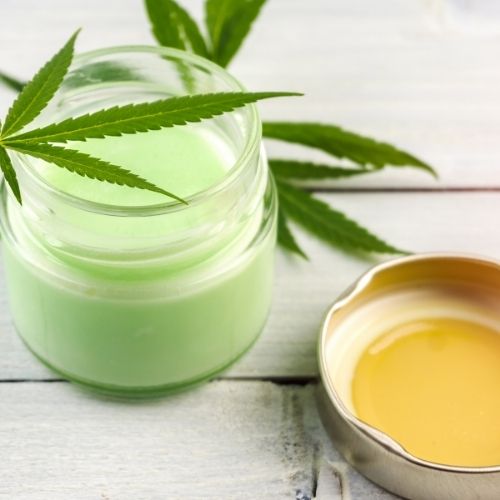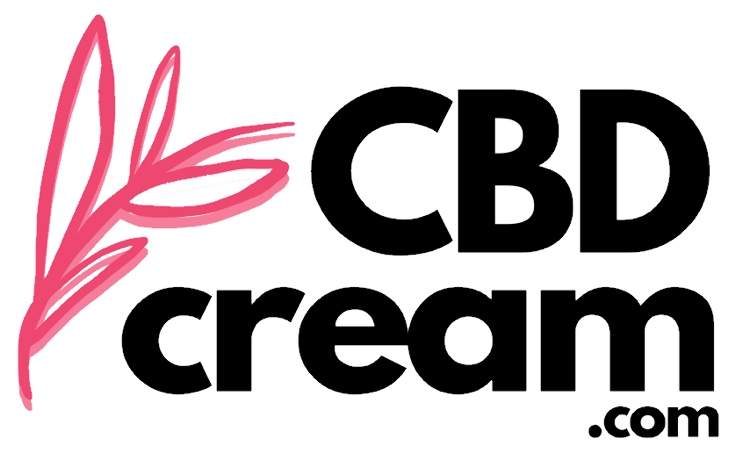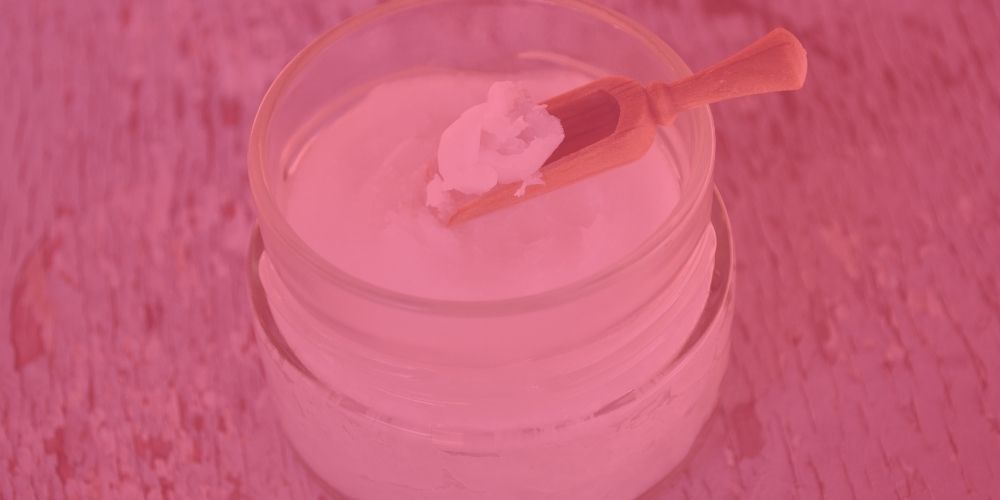The Cannabis sativa plant produces many chemicals naturally, including cannabidiol (CBD). Typically, CBD skin care products contain little to no tetrahydrocannabinol (THC), the element of the cannabis plant with psychoactive qualities.
So, What Does CBD Cream Do?
There are so many options out there when it comes to CBD products for anything from aches and pains to relaxation. And there are lots of delivery routes too, from CBD gummies to capsules and tinctures, the variety can verge on confusing. But the simple truth is that a topical CBD cream or salve is often especially therapeutic for muscle or joint pain.
It’s not easy to choose between so many CBD products, but knowing what CBD creams and other CBD products do in the body is a great place to start. This article explains the benefits of CBD skin creams, reasons to try them and conditions they might treat, possible side effects, and how to shop for CBD cream.
What is CBD skin cream?
Brands often extract CBD and suspend it in carrier oils such as coconut oil or hemp seed oil. These CBD oils can then form part of a rich skin lotion or cream. Research indicates that CBD may help reduce the symptoms of several skin conditions because of its anti-inflammatory properties.
CBD skin cream could also help treat painful joints as an anti-inflammatory. However, whether it is as effective at treating pain as NSAIDs such as ibuprofen remains to be seen, according to the Centers for Disease Control and Prevention (CDC).
CBD skin creams are usually made with broad-spectrum CBD, which has CBD along with other naturally occurring cannabinoids, but no THC. The other two common forms are full-spectrum CBD with only trace amounts of THC, and CBD isolate which is just pure CBD.
Health benefits of CBD skin cream
Science is on the side of CBD skin creams. They can treat several conditions:
Acne, eczema, and psoriasis. According to the American Academy of Dermatology Association (AAD), CBD may help treat acne, eczema, and psoriasis thanks to its anti-inflammatory properties.
Arthritis. Some research suggests that topical CBD products may have therapeutic effects on long-lasting behaviors and inflammation associated with arthritis.
Peripheral neuropathy. A 2020 study indicates that CBD oil can significantly aid in peripheral neuropathy pain management.
Jaw pain. A 2019 study showed that CBD products can help treat the stiffening and pain in the jaw caused by temporomandibular disorder (TMD).
Pain management. And recent research suggests many palliative care patients safely and regularly use medical marijuana as well as CBD products, especially topical products, to reduce pain from a number of medical conditions.
How to choose the best CBD cream
There are a few important factors to consider as you shop for CBD topicals:
Brand and reputation
Review any manufacturing processes, certifications, and other indicators of brand reputation and user trust such as: customer reviews, unsupported health claims made by the company, and whether the brand has been subject to a Food and Drug Administration (FDA) letter.
Third-party testing
Only buy CBD cream from brands that provide proof of third-party testing by an ISO 17025-compliant lab. The FDA can act against companies making false health claims or committing actual fraud, but it doesn’t guarantee the quality, safety, or efficacy of any CBD product at this time. This is why it’s so important to carefully read labels before buying.
Verify that the brand uses a reputable third-party lab, that the lab has performed contaminant testing, and that the certificate of analysis (COA) matches the product description. High-quality CBD creams contain no more than 0.3 percent THC and pass tests for heavy metals, pesticides, and molds, according to the COA. Also check for residual solvent testing results if the company uses a solvent-based extraction method.
CBD source and environmental impact

There are three basic types of CBD extracts in most CBD topicals: CBD isolate, full-spectrum, CBD, and broad-spectrum CBD. If you don’t want any THC at all, or anything but CBD for that matter, CBD isolate creams are ideal. For most of the cannabinoids that occur naturally in cannabis—except no THC—broad-spectrum CBD is the right option.
Full-spectrum CBD products preserve all the cannabinoids, flavonoids, essential oils, and terpenes from the hemp plant. There is some evidence that CHD and THC together produce better benefits as the various plant chemicals interact with the receptors in the body’s endocannabinoid system (ECS). This is called the entourage effect and for this reason, many people prefer full-spectrum or broad-spectrum CBD products. Full-spectrum CBD products have traces of THC, but less than 0.3 percent.
Choose CBD lotions made from all-natural hemp grown organically in the US. Also, ask about CBD extraction processes. Some of them use harsh chemicals that may leave traces in the product and harm the environment.
Ingredients
Watch for allergens, and irritants since the cream will be applied to your skin. Look for CBD topicals with additional non-GMO pain-relieving ingredients if you want relief from aches and pain, such as arnica, menthol, or camphor. If you’re hoping to treat dry skin and other skin conditions, look for CBD ointments and balms with moisturizing ingredients such as aloe vera, shea butter, vitamin E, and coconut oil.
Potency and dosage
There are usually about 3 to 8 milligrams (mg) of CBD per recommended dose or application for most topical CBD products. Low potency products are ideal for beginners, but people with more CBD experience, chronic pain, or both may prefer a higher potency product.
Cost
Consider all of the above factors, especially how the particular product meets your needs and how many doses it will provide, as you assess value. Some CBD skin creams cost more, but they’re not always of higher quality.
How to use CBD cream for pain
Apply CBD pain relief creams, salves, balms, ointments, and lotions topically and massage them into the skin wherever acute pain occurs. For example, if you have painful joints in your feet, massage the CBD cream right onto your feet.
CBD topicals treat surface irritation and pain and can in some cases reach deeper muscle inflammation and aches. Some users also find that CBD creams help them relax enough to sleep.
CBD topicals can feel warm or cool on the skin if they include specific pain relief ingredients, like arnica, start slow in your application to see how you experience these sensations. Whether or not you have sensitive skin—but especially if you do—apply just a small amount of the CBD cream to your wrist first to patch test it for irritation.
Along with classic topicals, CBD transdermal patches are also available on the market.
Safety and side effects
Research proves that CBD is generally safe to use as needed, and reapply at will. Never ingest topicals unless their packaging specifically indicates they are for other than external use. Don’t apply CBD cream to open wounds, broken skin, or sores.
Occasionally CBD can produce side effects. A 2017 review indicates that diarrhea, tiredness, and a change in appetite or weight are the most common side effects of CBD products. However, the researchers also found that compared to other drugs that doctors use to treat the same conditions, CBD products have fewer side effects.
According to the AAD, contact dermatitis may be a side effect of CBD skin cream—but that is also true of any topical lotion. And although some people worry about THC, the AAD says that CBD creams will not make a person feel high because they contain little to no trace of THC.
CBD topicals are not as likely to cause full-body effects by absorbing into your bloodstream. Even so, it’s important to check with a doctor or other health care professional about medication interactions before starting new products. And remember, the internet is never the same as real medical advice.

CBD skin cream may help treat arthritis, eczema, psoriasis, and any other issue caused by inflammation. There are many brands out there, but for the best CBD cream possible, pick a potent CBD cream made with high-quality ingredients by a reputable company.
Disclaimer:
Is CBD Legal? CBD products that are hemp-derived have less than 0.3 percent THC. They are legal at the federal level, but they remain illegal under the laws of some states. CBD products derived from “marijuana,” or cannabis plants with more THC, are illegal federally but legal in some states. Before you travel, check the law of your destination state. Remember, nonprescription CBD products may be inaccurately labeled because they are not FDA-approved.


